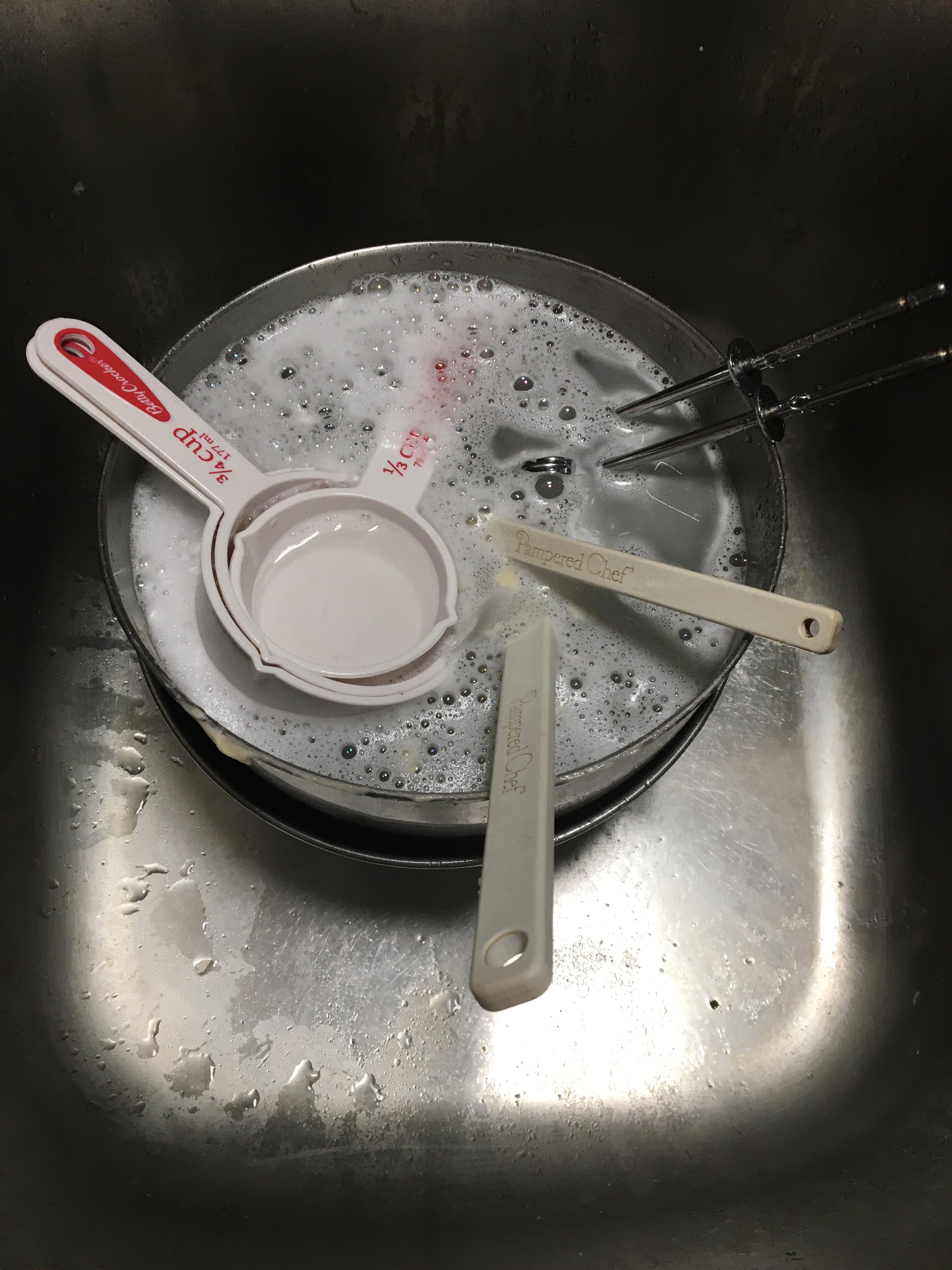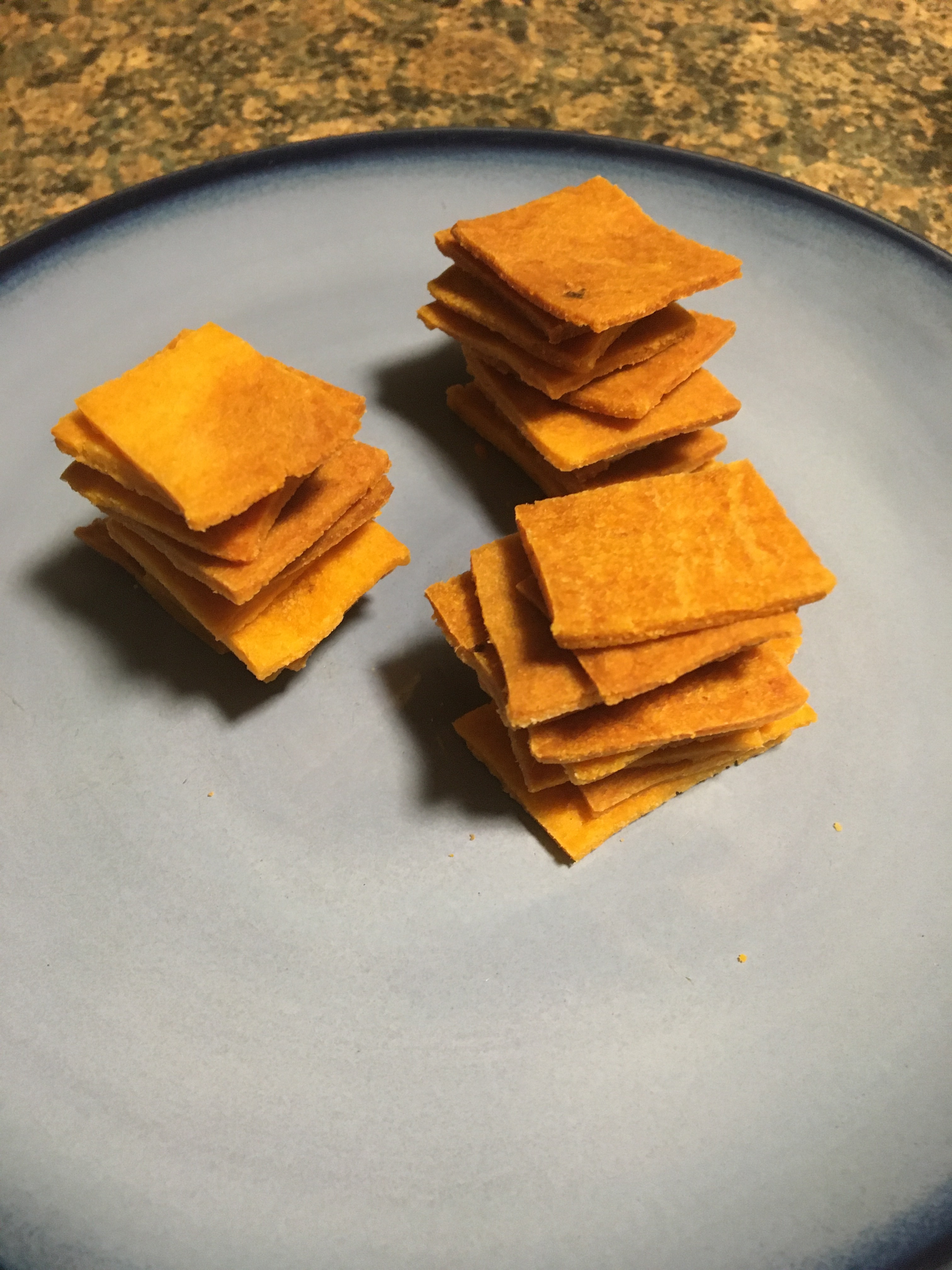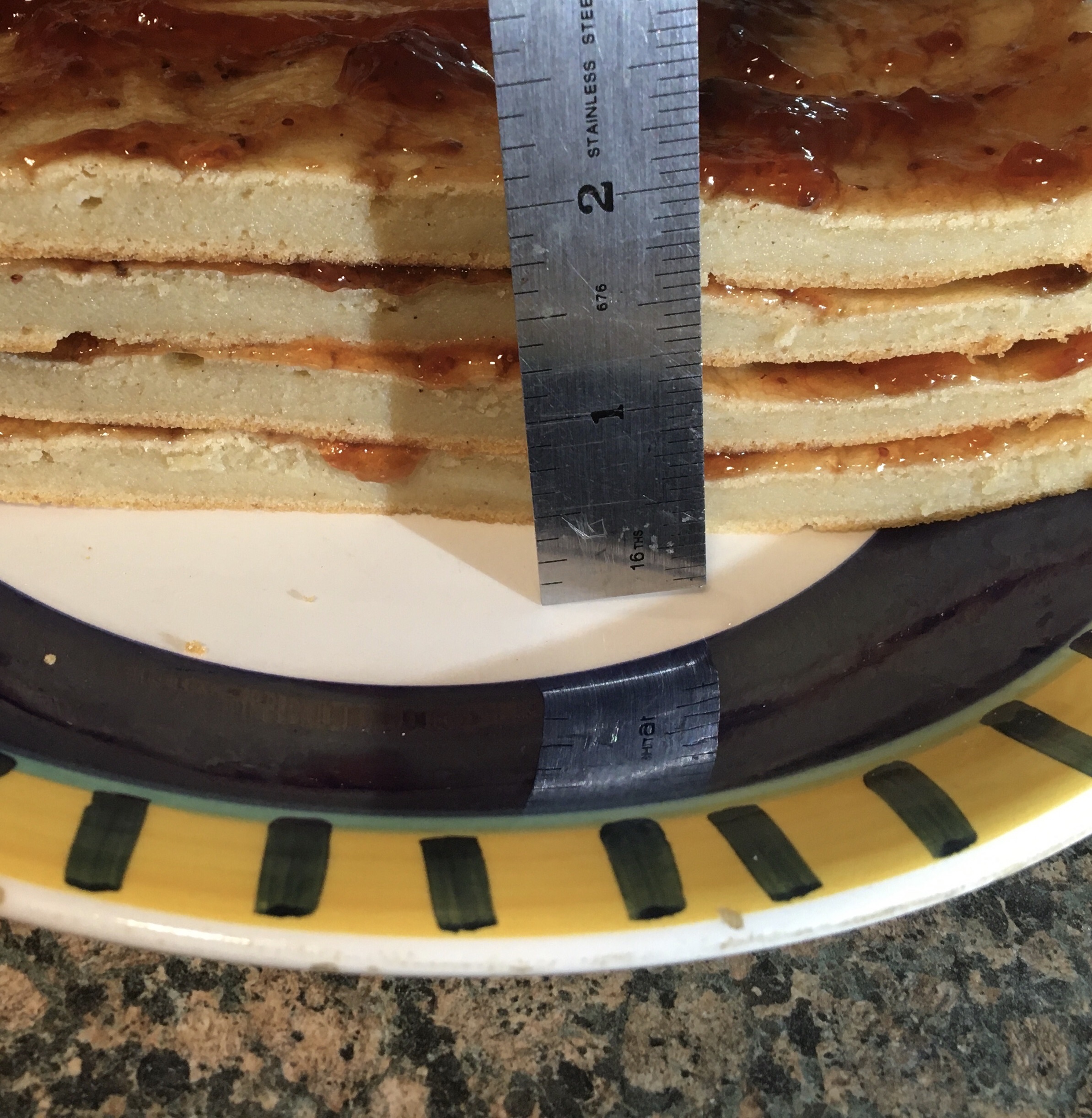
Forty-eight years ago I baked a cake. It was an experience that left me with the conviction never to bake a cake again. Which I upheld for the rest of my life.
Until now.
I recently commiserated with a friend who had had a similar post-baking-catastrophe conviction. We bravely agreed to challenge ourselves by baking again the dreaded and avoided. Her challenge: biscuits. My challenge: another layer cake.
Once committed to this, a mix of courage and trepidation and procrastination bubbled up.
Courage nudged me. “But, look. You haven’t given up. So that must mean you might do this.”
Trepidation brought me doubts. “Am I ever actually going to do this?”
Procrastination held my hand as I browsed for recipes that promised success. All three kept me occupied, fantasizing new cake pans, new mixing bowls, and new ingredients for the layers and their frostings.
I realized I might be using one of my favorite tools from Peter Levine, author of In an Unspoken Voice. That tool is titration. In chemistry, titration is the slow addition of one solution of a known concentration to a known volume of another solution of unknown concentration until the reaction reaches neutralization. <yawn>
In Dr. Levine’s model of trauma resolution (Somatic Experiencing®) titration refers to evoking the smallest amount of autonomic nervous system activation needed so that a shift can happen and be integrated rather than triggering the overwhelmed physiology that already has been a problem.
In my words? Add the smallest amount of X to Y so you get a change without getting an explosion. My functional, in-the-kitchen adaptation of this word titration? Proceed in tiny, tiny steps, feeling my way very, very, very slowly toward a change.
I think of how I get into water.
Sometimes I dive right in and come up gasping from the shock as the cooler water touches every square inch of skin all at once. Sometimes that’s the only way I’ll get in, eventually to enjoy the swimming and floating I so love.
Sometimes I enter slowly – a different sensory challenge. Have you ever submerged yourself so slowly and deliberately that you feel each millimeter of contrasting air/water/body temperatures as they meet? I have, riding that edge between tolerable and intolerable temperature change, often fighting the urge to retreat or jump in – either of which would bring a welcome end to this sufferingly slow approach.
So, how do I titrate my next cake baking experience?
By getting ready – making all the plans and preparations for baking a layer cake, over and over in my head.
By entertaining myself – with stories about baking this next cake, over and over in my head. In these stories I am the main character of course, aptly named The Cake Baker. And I have an adversary called The Cake. One recent story has a title: The Return of the Cake Baker.
By baking other things – such as sweet potato crackers. Further titrating by baking several versions of sweet potato crackers. In these stories I am known as the Cracker Baker. Revise that please: the Cranky Cracker Baker. Because what I really wanted to bake (COOKIES!) wasn’t what I actually allowed myself to bake.

Meanwhile, thanks to my titration behavior, I was still getting ready to bake another layer cake. I was still successfully avoiding overwhelm by my remarkably slow approach to cake baking. Rehearsing the steps. Checking the cupboard for ingredients. Arguing with myself about which recipe to follow. I wanted to follow any number of chocolatey layered cakes with gooey frosting and an array of exotic flavors combined for instant gustatory intoxication.
My intention however is to follow the same Joy of Cooking “Plain Layer Cake” recipe that I suspect I used in 1972.
“Sugar helps make cakes lighter, so your finished cake [with sugar substitute] will be denser.” Uh-oh. Trembling begins as I research the impact of substitute ingredients. “Denser” is something I do not want. I am not looking to repeat my first layer cake experience by baking another four-layer cake that comes out two inches high.
Finally I was actually ready to bake. Seeking last minute reassurance from Siri for the various substitutions. Putting on the counter all of the ingredients, the measuring spoons, the mixing bowls, the whisks and spoons and spatulas. Distracting myself with Facebook. Quietly rallying a smidgeon of hope for success. Determined to follow the recipe slowly, slowly, step by step by step.
Twice I almost quit this gargantuan undertaking. First when I couldn’t decide which gluten-free baking mix to use. Of the four mixes in the pantry, I made the commitment to Bob’s 1:1 Gluten Free Baking Flour. Shortly after, instead of running screaming from the kitchen never to return, I managed to calmly slather aloe vera on my burnt fingers. I’d picked up a spoon forgetting it would be 375°F like the poorly insulated oven it was sitting on. (Fresh aloe vera does a quick job of soothing burn boo-boos in case you didn’t know.)
So I measured and blended and sifted and beat and felt pretty good about what was shaping up in the bowl of batter. I greased the pans and urged the batter into them, stopping long enough to check with Siri about batter consistency. Online cooks seem to think thick batter means good rising and moist cake. That’s exactly what I wanted.
Cake pans in, timer set, and out I go to help in the garden where we were setting up an irrigation system. Back inside and five minutes later the timer rings. I don my oven mitts and open the oven door.
ANOTHER HUGE DISAPPOINTMENT!
Tears came as I pulled the cake pans out and set them on the cooling racks. Woefully I stood there wondering, “Why am I crying? Why am I so upset about a cake? Why am I feeling like a kid all alone and failing once again in my efforts to get something right?”
I just wanted to curl up in a ball and suck my thumb.
Instead, I shook my head and asked myself, “Will I ever, ever bake a cake again?”
If I cared enough about cakes and eating them, I would! I would bake again. I would experiment and take notes and try, try again to make a layer cake that rises. I like puzzles. I could figure this out. But I rarely eat cake and don’t really care much for baking. However I do care a lot about finding freedom from this deep distress that rose when the cake did not.
I’m pleased I made this second cake despite my baking history. I am very disappointed it failed. I am proud to say I have been able to talk about this cake, and laugh, and get support about it, even eat it. But what I really, really want to be able to do? Shout at the top of my lungs:
“Look at my layer cake! It rose! I did it!”
